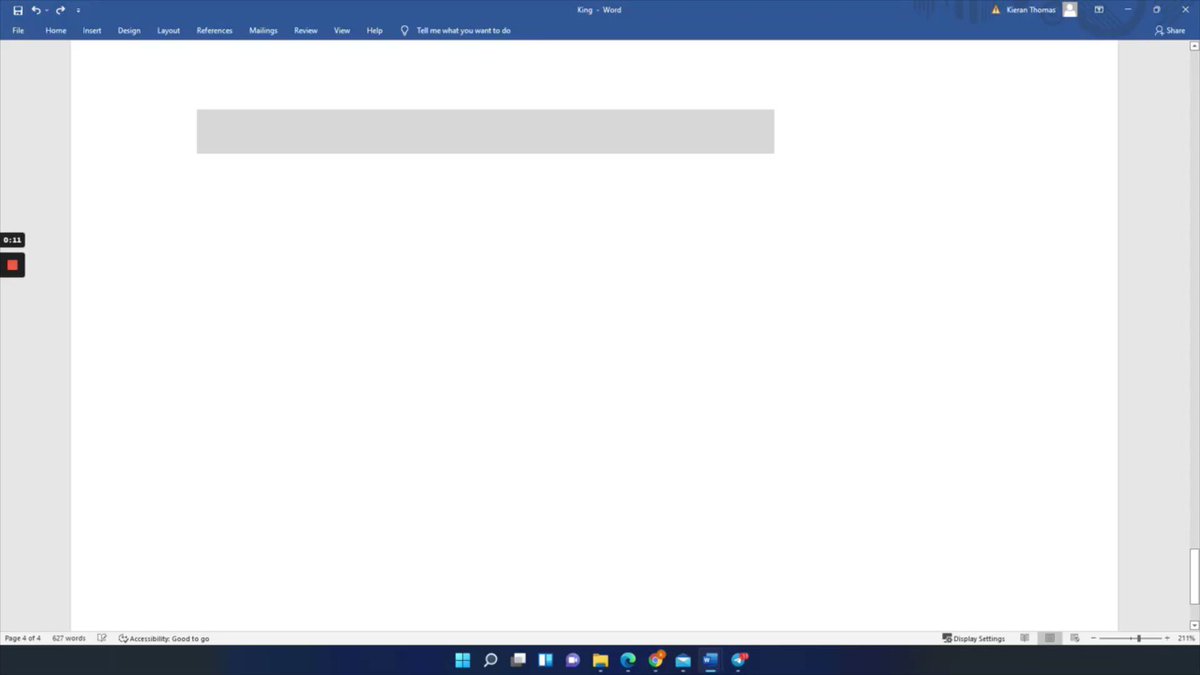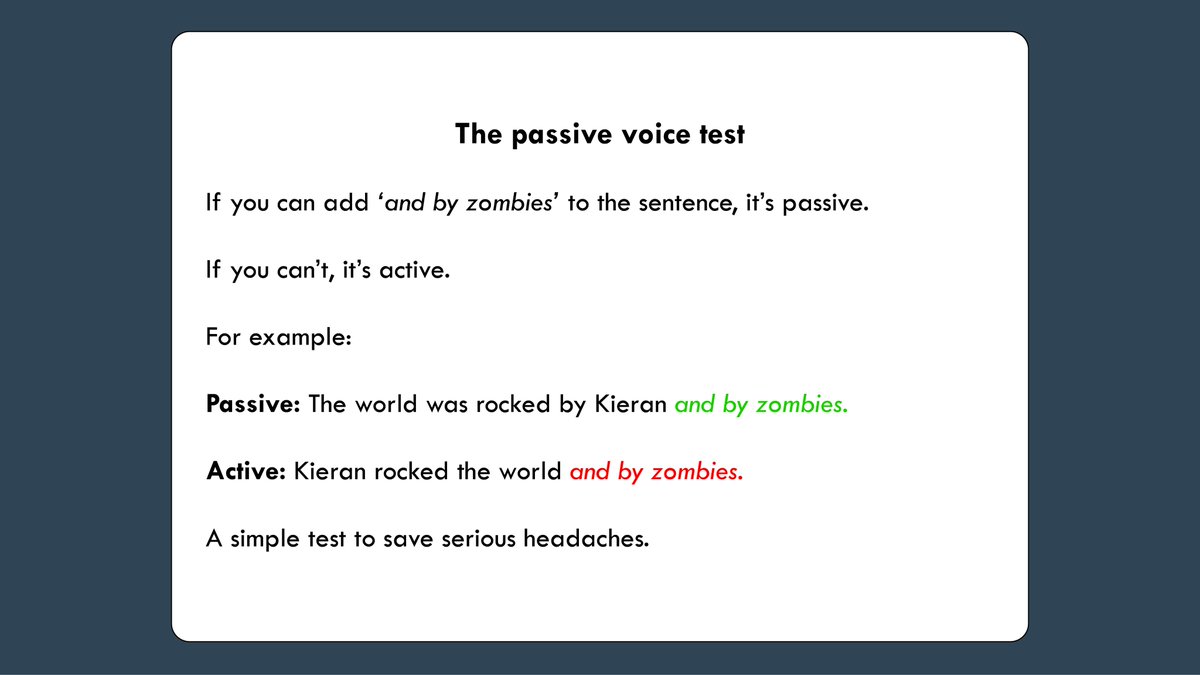❌ Not Varying Sentence Length
We don’t see what we read.
We hear it.
If each sentence is the same length, you sound boring.
Instead, aim for 20% long and 80% short.
Make your sentences sing.
❌ Writing and Editing Together
Writing and editing are two separate skills.
Mix them and you suck at both.
Instead:
Leave 24 hours between each session (longer if possible).
Write first, edit later.
❌Not Formatting
Before we read, we assess.
'Is this worth my energy?'
Be easy to read and you'll be easy to love.
❌ Sounding Academic
Schools teach you to use complex and clever language.
But online, personality wins.
Treat writing like a conversation with a close friend.
Read it out loud before you publish.
Delete anything you wouldn’t say in person.
❌ Using Adverbs
Stephen King once said, ‘The road to hell is paved with adverbs.’
They don’t strengthen your point.
They weaken your writing.
Use adverbs as an opportunity to swap for bolder language.
❌ Saying Too Much
Schools punish you for not writing enough, but the internet rewards you for being succinct.
Say what needs to be said, then say no more.
Pro tip:
When you edit, reduce your word count by 30%.
Constraints are the key to creativity.
❌ Hedging Your Bets
Writing is a reflection of your thoughts.
And people aren’t interested in weak ideas.
They want strength.
Be bold.
Never hedge your bets.
❌ Not Writing to One Person
When you write to everyone, you write to no one.
People want to feel special.
Instead:
Imagine you're speaking to one avatar (write to your past self if you're not sure who)
❌ Being Too General
Weak writing is vague.
Strong writing is specific.
❌ Using Big Words
The average reading age in US is 12.
In the UK, it’s 9.
Be clear, not complex.
❌ Not Being Exciting
The worst thing you can be online is boring.
Swap words for more exciting, emotional ones.
(Use
https://t.co/TsWfm8u9CG h/t
@wrongstowrite)
❌ Using Passive Voice
Passive writing is weak and wordy.
It ruins the flow.
An example:
The girl was smiled at by the boy.
The boy smiled at the girl.
Use this test 👇
TL;DR
12 writing mistakes to avoid:
· Adverbs
· Too wordy
· Big words
· Being boing
· Passive voice
· Hedging bets
· No specificity
· No formatting
· Writing to a crowd
· Sounding academic
· Same sentence length
· Writing & editing together
Thanks for reading!
If you enjoyed this, 2 requests:
1. Drop me a follow
@itskierandrew for ideas on writing, philosophy and business
2. Share the thread so others can read
Just click below and up you go, cheers.
https://t.co/8WfN86MAJI
Writing tips are great and all...
But if you're interested in attracting an audience, building your business and creating killer copy, you'd love my newsletter A-B-C.
Come join 5.5k writers here:
https://t.co/YePBTJOIno












